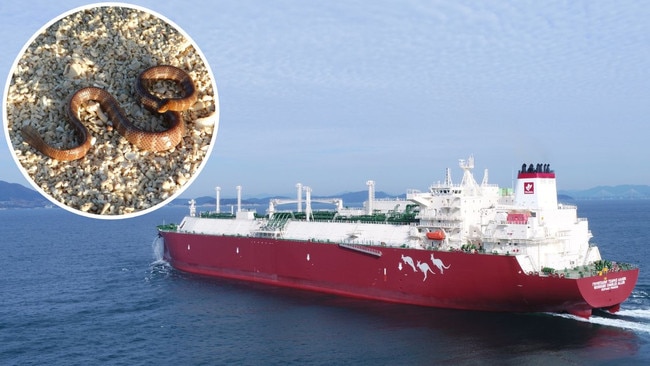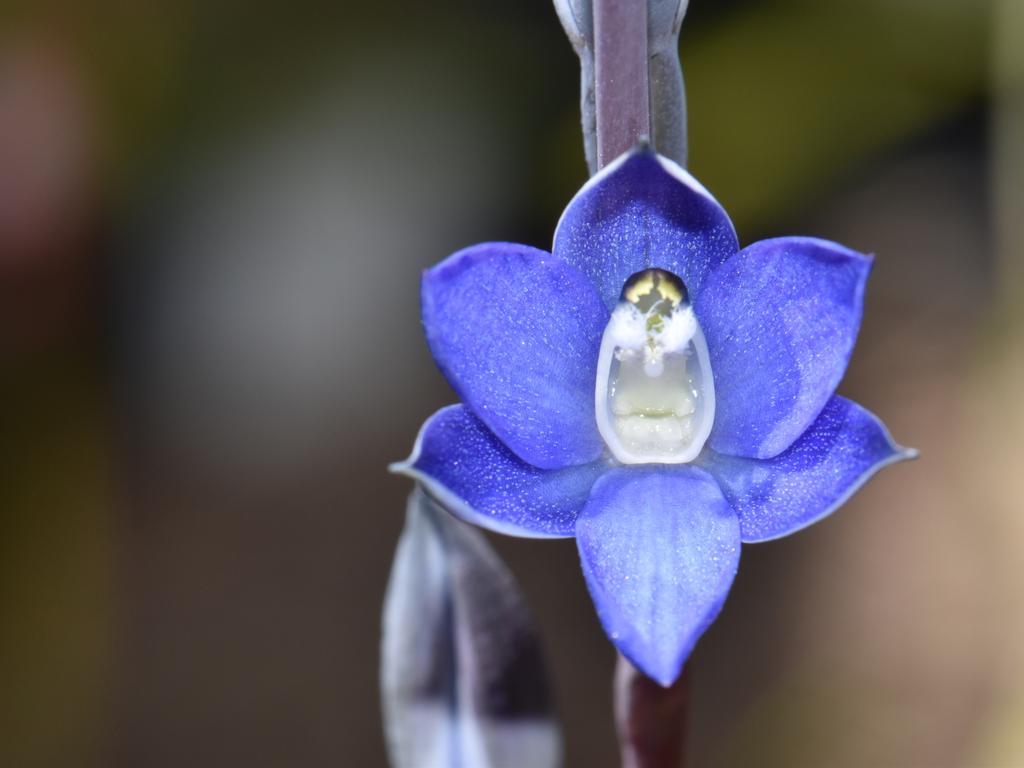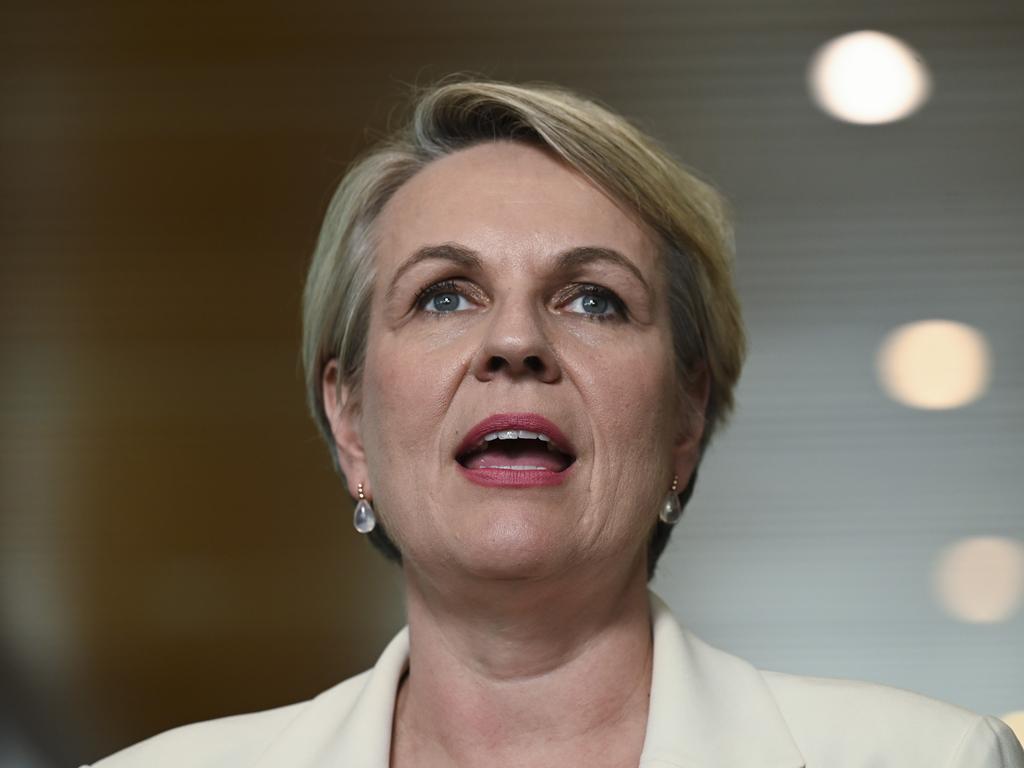Tanya Plibersek rules out endangered sea snake threat to $29bn gas project
Tanya Plibersek has defied her own department and swiftly ruled out any new review of oil and gas projects in the Timor Sea, after the detection of a rare sea snake sparked a call for urgent intervention.

Tanya Plibersek has defied her own department and swiftly ruled out any new review of oil and gas projects in the Timor Sea, after the detection of a rare sea snake near Woodside’s $US20bn ($29.74bn) Browse gas project sparked a call for urgent intervention from her team of expert scientific advisers.
The dusky sea snake, which is almost exclusively found in the waters of Scott Reef, above the Browse project’s Torosa gas field, was formally declared endangered after scientific advisers to the Department of Climate Change, Energy, the Environment and Water made the declaration this week.
The conservation advice from the advisers calls for action to address the impacts from the local fossil fuel industry, saying there needs to be an urgent review of all oil and gas activities across the Browse Basin and the Timor Sea to determine whether the known and potential impact on the snake were being adequately considered and avoided.
“It is critical a precautionary and nature-positive context is applied to addressing known, likely, and potential impacts to the dusky sea snake, particularly in relation to regulation of the local fossil fuel industry and other activities that are driving climate change,” the conservation advice says.
The Environment Minister in a statement to The Australian made it clear that the findings would not prompt a fresh review of oil and gas projects in the region. “This is simply advice from a committee established by John Howard.
“It doesn’t dictate government action or decision-making in any way,” she said.
The declaration and advice comes amid an ongoing assessment of the Browse project by Ms Plibersek under the Environment Protection and Biodiversity Conservation Act.
The sea snake, however, will not factor into the minister’s EPBC assessment of the project, with the relevant legislation requiring the minister only to consider the status of species as they were at the point the application was lodged.
Earlier this year, Ms Plibersek blocked plans for a wind turbine assembly terminal at Port of Hastings in Victoria because of its likely impact on internationally important wetlands, and intervened to end Woolworths’s plans for an expanded depot in regional NSW because of concerns it could impact on a rare species of orchid.
Unlike those projects, however, Browse has already passed the first stage and been accepted for assessment.
In August, Ms Plibersek effectively blocked Regis Resources’ $1bn McPhillamys goldmine after some Indigenous stakeholders expressed concerns about the location of the mine’s tailings dam.
Section 10 applications have also prompted a review into the impact on Indigenous heritage from works under way at WA’s Burrup Peninsula, and a push to consider blocking resources projects across SA’s Lake Torrens.
Woodside and its partners plan to pipe gas from Browse some 1000km south to the Pilbara, where it would be processed into LNG at the North West Shelf facility.
Browse is Australia’s largest undeveloped gas field. It has been the subject of multiple development plans in the past decades, but its logistic complexity has always made it particularly challenging.
The scale of the project, and the fact it has higher than average volumes of CO2, has long made it a target for environmental activists.
The department’s conservation advice about the dusky sea snake described how oil pollution and excessive marine noise were “almost certain” to have a major impact on the species.
It also found frequent and severe marine heatwaves and persistent high water temperatures, both of which it said were being exacerbated by fossil fuel extraction, were almost certain to have a catastrophic impact.
Environmental groups were quick to jump on the department’s findings, saying the advice was further evidence Browse should not go ahead.
Jess Beckerling, executive director of the Conservation Council of WA, said the government must heed the federal department’s call for an urgent review of Woodside’s plans.
“There is now yet another reason that Woodside’s Browse proposal cannot be approved,” she said. “To protect the endangered dusky sea snake, and all the other marine life at Scott Reef, the state and federal governments must refuse Woodside’s Browse gas proposal.”
The dusky sea snake’s declaration was also seized upon by the head of climate and energy at Greenpeace Australia Pacific, Joe Rafalowicz, who said it showed Browse was “too risky to proceed”.
“Minister Plibersek’s commitment to ‘no more extinctions’ under this government will ring hollow if she does not immediately follow her own department’s advice to protect Scott Reef by urgently reducing and eliminating threats from the fossil fuel industry,” he said.
A spokesman for Woodside noted that the existing environmental impact statement for the project already considered the impact on the dusky sea snake as well as other sea snake species.
“The existing EIS identifies other sea snakes as being present in the project area. We expect the management measures and commitments we have previously made to mitigate any potential environmental impacts associated with Browse to be relevant to the dusky sea snake,” he said.
The spokesman said while the Browse development would occur near Scott Reef, no activities were expected to affect the reef habitats that are inhabited by the dusky sea snake.
An economic impact assessment of Browse, prepared by ACIL Allen Consulting in 2019, estimated that the project would generate almost $63bn in taxes and royalties and would boost Australia’s GDP by $289bn over the life of the project.






To join the conversation, please log in. Don't have an account? Register
Join the conversation, you are commenting as Logout